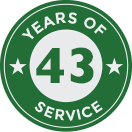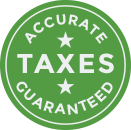What is the Estimated Tax Penalty?
The United States has a “pay-as-you-go” tax system. Rather than waiting for the end of the year to get their taxes, the government wants taxpayers to pay smaller portions of tax throughout the year. For most wage-earners, they don’t even need to think about it- Their employer takes money out of their paycheck and pays…
Professional Clothing Tax Deductions
Prior to 2018, everyone could potentially claim a deduction on Schedule A for unreimbursed work-specific clothing and laundering expenses. After the Tax Cuts and Jobs Act, most employees lost this deduction, but Clergy can still deduct these costs on their Schedule SE. However, there are still restrictions in place on the deduction. First, the expense…
How do I calculate my Self-Employment Taxes?
The Self-Employment Taxes that most members of the Clergy must pay quarterly are actually made up of two different taxes: Old-age, survivors and disability insurance (also known as “OASDI” or the more commonly used term “Social Security”) Medicare taxes OASDI taxes are calculated as 12.4% of your income. The maximum wage limit on OASDI is…
Where’s My 1040 Refund?
While IRS issues the majority of taxpayer refunds in less than 21 days for electronically filed returns, in some cases return processing can be delayed. If it has been more than 21 days since your tax preparer electronically filed your return, or 6 or more weeks since you mailed in a paper copy of your…
How do we pay nonexempt staff for after-hours communications?
Generally, non-exempt employees are paid hourly. We recommend instructing non-exempt employees to track all their time worked and prohibit working off the clock. Churches may use any timekeeping method they choose as long as it’s accurate and capturing all the required information (see below). For example, you may use a time clock, have a timekeeper keep track…
Solar Credits Maximized in 2019, Decrease in Future Years
Under current tax law, the federal government allows 1040 filers to deduct 30% of the costs of installing a solar energy system, with no cap on the amount you can spend. However, these energy credits start to decrease after 2019. In 2020, you will only get a credit of 26% of your costs. In 2021,…
What are Self-Employment Taxes?
If you are new to Ministry, it’s possible that you’ve never heard of self-employment taxes before, much less paid them. One common mistake for new Ministers is filing the 1040 without taking self-employment taxes into account, which can result in a big bill later when your 1040 return gets corrected by IRS. When you work…
Student Loan Forgiven Programs By State
Forty-five states and the District of Columbia all have special student loan forgiveness programs for residents of their states. Many of the programs are in public service fields, such as health care, teaching, dentistry, legal, and more. Remember, there are still Federal Student Loan Forgiveness programs and Secret Student Loan Forgiveness programs as part…
The Decision: Clergy or Non-Clergy
When a church hires an employee, one of the initial decisions that must be made is whether to treat the worker as clergy, non-clergy employee or contractor. This decision may seem insignificant, but it has huge implications when it comes to payroll. Ministers have what is commonly referred to as “dual tax status.” For federal…
Five Myths about the Ministry Housing Allowance
The Housing Allowance is one of the best tax benefits available to members of the Clergy, but also one of the most misunderstood. Here are five common misconceptions about the Clergy Housing Allowance. 1. I can only change my designation once a year. False. There is no IRS regulation stating that designations can only be…






